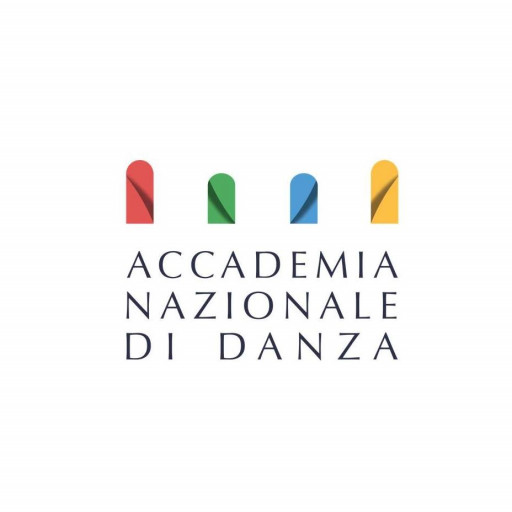Photos of university / #unlitoral_
The Bachelor of Child, Youth and Family Studies with a specialization in Family and Community Services at the National University of the Littoral is a comprehensive undergraduate program designed to prepare students for meaningful careers in supporting children, youth, families, and communities. This curriculum offers a multidisciplinary approach, integrating insights from education, social work, psychology, and community development to equip students with the essential knowledge, skills, and ethical understanding required to make a positive impact in diverse settings. Throughout the program, students engage with core topics such as child development, adolescent psychology, family dynamics, community engagement, and social policies, fostering a holistic understanding of the factors that influence individual and community well-being.
The program emphasizes practical experience through internships and fieldwork placements, enabling students to apply theoretical knowledge in real-world contexts and develop hands-on skills in areas such as case management, counseling, advocacy, and program planning. Emphasizing social responsibility and cultural competence, the curriculum prepares graduates to work effectively with populations from diverse backgrounds and to address issues such as child protection, family support, youth empowerment, and community development. In addition to coursework, students are encouraged to participate in research projects and community initiatives that promote social inclusion and resilience.
Graduates of this program are well-equipped to pursue careers in various sectors including social services agencies, educational institutions, community organizations, government departments, and non-profit organizations dedicated to child and family welfare. They may also continue their education through postgraduate studies in social work, psychology, or related fields. The program’s structured combination of academic learning, practical training, and community involvement ensures that graduates leave with a solid foundation to support the development and well-being of individuals and families, fostering healthier, more resilient communities.
The Child, Youth and Family Studies — Family and Community Services program at the National University of the Littoral provides students with comprehensive training in the fields of family dynamics, child development, youth engagement, and community support structures. This degree is designed to equip future professionals with the skills necessary to promote healthy development and well-being within families and communities. Throughout the program, students explore a wide range of topics including psychology, social work, sociology, and public policy, all integrated to foster a holistic understanding of family and community systems.
The curriculum emphasizes both theoretical foundations and practical applications. Students will engage in coursework covering child and adolescent development, family law, counseling techniques, program planning, and community outreach. There is a strong commitment to developing skills in communication, problem-solving, and cultural sensitivity, ensuring graduates are prepared to work effectively with diverse populations. The program also includes hands-on internships and fieldwork opportunities, allowing students to apply their knowledge in real-world settings such as social service agencies, schools, community organizations, and healthcare facilities.
Furthermore, the program focuses on current issues affecting families and communities, such as mental health, poverty alleviation, gender equality, and social justice. Students are encouraged to critically analyze policies and practice approaches to advocate for positive change. The multidisciplinary nature of the program prepares graduates for a variety of careers, including family counseling, social work, community development, child advocacy, and program coordination.
By completing this program, students will gain a thorough understanding of family systems and community resources, alongside essential skills in case management and family intervention strategies. They will be equipped to work collaboratively with other professionals to support families facing challenges and to develop innovative solutions that foster resilient, healthy communities. Our graduates are well-prepared to make meaningful contributions to the social and developmental well-being of individuals and society at large, reflecting the university’s commitment to social responsibility and community engagement.
Program requirements for the Child, Youth and Family Studies — Family and Community Services at the National University of the Littoral include a combination of academic coursework, practical experience, and competency development designed to prepare students for professional roles in family and community support services. Prospective students are generally expected to hold a high school diploma or equivalent for admission. The program emphasizes foundational courses in child development, family dynamics, and community health, requiring students to complete core modules such as Introduction to Child and Youth Studies, Family Sociology, and Community Service Practice. Additionally, students must undertake specialized courses focusing on family law, psychology of childhood, social policy, and intervention strategies. Practical training is an integral component, involving supervised placements in community organizations, childcare centers, and family support agencies, aimed at developing real-world skills and understanding of practical challenges. Students may also be required to complete a capstone project or a thesis demonstrating their ability to apply theoretical knowledge to concrete issues facing families and youth in diverse contexts. Throughout the program, students are encouraged to engage in research activities, interdisciplinary teamwork, and community engagement initiatives to foster a comprehensive understanding of the social factors impacting families and children. Language proficiency requirements typically include a good command of English, as some coursework and assessments are conducted in this language. Additionally, students might be expected to attend seminars, workshops, and conferences related to current issues in family and community services. Successful graduates of the program are prepared for employment in various sectors including social services, education, healthcare, and governmental agencies, with the skills necessary to assess family needs, develop intervention plans, and support community well-being. The program may also provide opportunities for further specialization or postgraduate study for those interested in advanced research or academic careers in child, youth, and family studies.
The financing of the Child, Youth and Family Studies — Family and Community Services program at the National University of the Littoral primarily relies on a combination of government funding, student tuition fees, and potential scholarships or financial aid options. As a public university, the institution benefits from subsidies provided by the government of the Littoral region, which helps to reduce the overall cost of education for admitted students. These subsidies are allocated to support the operational costs of the program, ensuring that quality education and practical training are accessible to a broad range of students. Tuition fees constitute a significant part of the program’s financial structure and are set annually based on the university’s budgeting requirements, inflation rates, and the specifics of the program's resources. For local students, the fees are generally lower compared to international students, reflecting subsidies and local funding agreements.
Students may also have access to numerous scholarships offered by the university or external organizations, aimed at supporting those with academic excellence, financial need, or specific demographic backgrounds such as minorities or disadvantaged communities. The university’s financial aid office provides guidance and assistance in securing such scholarships, which can substantially offset tuition costs. Furthermore, there are often work-study programs or part-time employment opportunities within the university, allowing students to earn income while completing their degrees, thereby reducing their financial burdens.
In addition to tuition and scholarships, there are sometimes grants or subsidies available through government initiatives designed to promote the training of professionals in family and community services fields. These initiatives can include stipends for internships, sponsorships for research projects, or funding for community-based projects integrated into the curriculum.
Overall, the financing structure of the Child, Youth and Family Studies — Family and Community Services program is designed to be as inclusive as possible, combining governmental support, institutional resources, and student financial assistance. Students are encouraged to explore all available options to minimize financial barriers and facilitate access to quality education in this vital field.
Accreditation
The University of Nebraska-Lincoln is accredited by the Higher Learning Commission (HLC) of the North Central Association of Colleges and Schools, one of six regional accrediting agencies. The University of Nebraska-Lincoln has been continuously accredited since 1913. The Office of Academic Affairs is responsible for coordinating University efforts to prepare for the accrediting agencys periodic site visits and reviews. The university last underwent a comprehensive self-study and site visit during the 2006-07 academic year. The next comprehensive evaluation will be in 2016-17.
UNLs Statement of Affiliation Status (confirmation of accreditation) can be accessed on the Higher Learning Commissions website.





